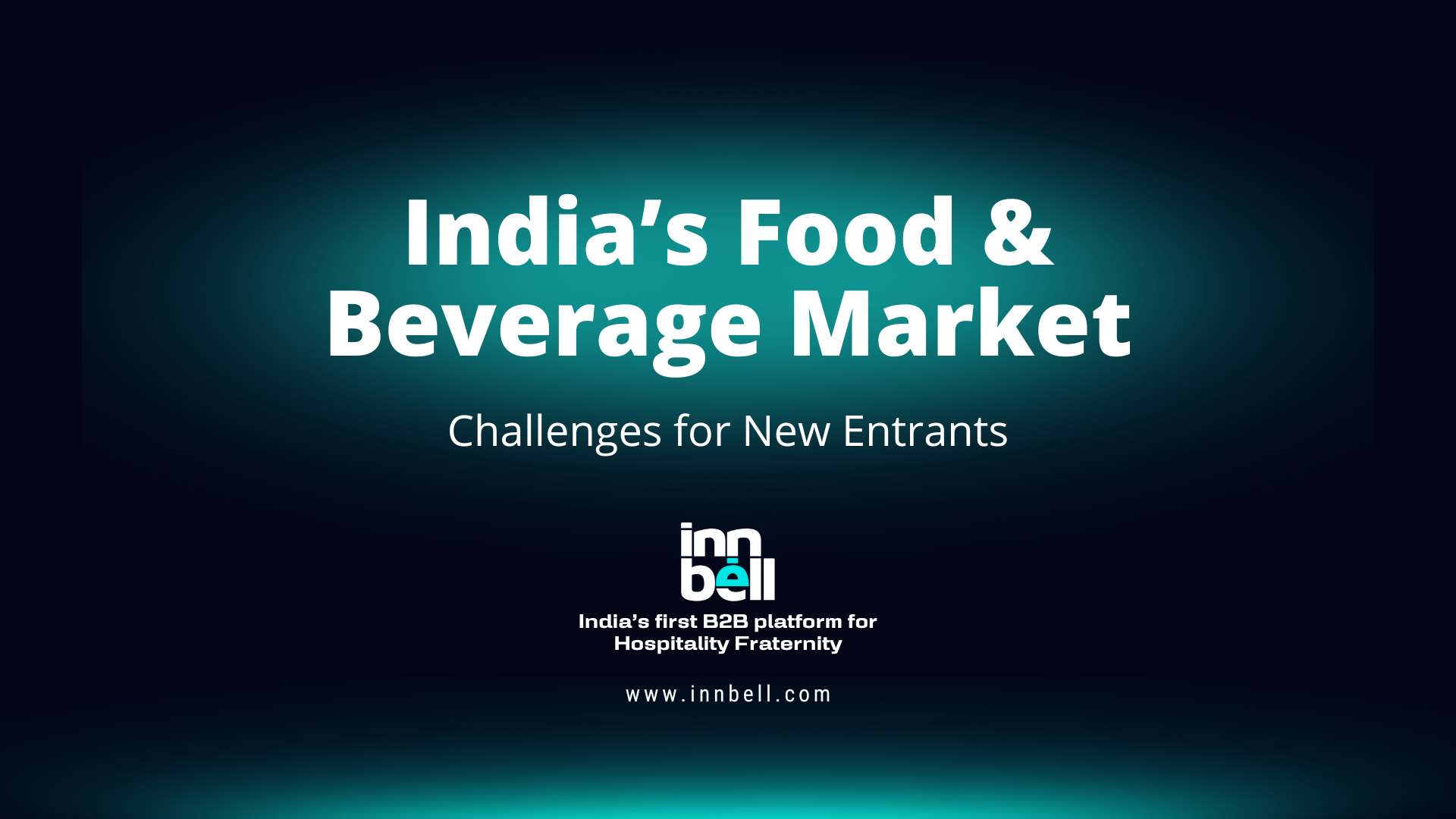


The Indian Food & Beverage (F&B) industry is experiencing a period of rapid growth, driven by rising urbanization, increased disposable incomes, and a shift in consumer preferences towards dining out and online food delivery. According to reports, India’s foodservice market is projected to reach USD 79.65 billion by 2028, growing at a robust pace as new establishments tap into both casual and fine dining opportunities (*India Brand Equity Foundation). However, despite this promising outlook, new restaurants and cafés in India’s metro cities face considerable challenges, with many failing to survive their initial years due to severe supply chain issues.
India’s urban demographic, particularly in major cities like Delhi, Mumbai, Bangalore, and Hyderabad, has shown a marked inclination towards dining out, exploring global cuisines, and seeking high-quality food experiences. The rise of food delivery platforms and an increase in quick-service restaurants have also contributed to the market’s growth. Additionally, consumers’ growing preference for eco-friendly and health-conscious dining options has opened doors for niche establishments specializing in organic, plant-based, and sustainably sourced foods.
For entrepreneurs, these trends present lucrative opportunities to capture market share by catering to evolving tastes. The demand for diverse food options and premium dining experiences creates a vast space for innovation within the F&B industry.
Despite this growth potential, the F&B industry in India faces significant supply chain hurdles that disproportionately impact new establishments. Key challenges include:
Fragmented and Costly Logistics: India’s logistics infrastructure is highly unorganized, with transportation costs consuming over 13% of GDP compared to around 5% in developed nations (*Retailer Insights). Poor road conditions, limited cold chain facilities, and fragmented logistics networks make it difficult for restaurants to receive timely, high-quality supplies, particularly for perishables.
Lack of Reliable Cold Chain: Around 85% of India’s cold storage capacity is focused on single-use items like potatoes, leaving limited options for multi-purpose storage. This lack of infrastructure leads to spoilage and inconsistent product quality for restaurants relying on fresh ingredients like fruits, vegetables, and dairy
(*Supply Chain Brain). For new establishments that lack established supplier relationships, these issues often result in unreliable service and frequent stockouts.
Increased Cost of Goods Sold (COGS): Supply chain inefficiencies, along with rising labor and fuel costs, have significantly driven up the cost of goods sold for restaurants. This cost pressure is particularly challenging for smaller establishments, which often operate on thin margins and struggle to absorb price fluctuations in their supply chain (*KPMG Assets).
Regulatory and Licensing Complexities: Navigating India’s complex regulatory environment is another challenge, especially for businesses dealing with alcohol or specialized imports. The time and cost involved in obtaining necessary licenses add to operational overheads, pushing many new entrants toward unsustainable financial positions early in their lifecycle (*Retailer Insights).
These supply chain issues collectively lead to high wastage, elevated operational costs, and inconsistent product quality, which negatively impact customer experience and profitability. For new establishments, these problems often mean an inability to compete, eventually resulting in closure.
As a specialized B2B platform for the hospitality industry, InnBell is strategically positioned to alleviate some of these supply chain burdens for new and existing restaurants. Here’s how:
Trusted Vendor Marketplace: InnBell provides access to a centralized marketplace of GST-verified vendors, allowing restaurants to source products from legally registered suppliers. While InnBell doesn’t guarantee product quality, it ensures that all vendors meet a baseline verification standard, reducing the risk of fraud and unreliable suppliers (*Retailer Insights).
Streamlined Procurement Process: By bringing multiple suppliers into a single platform, InnBell simplifies the sourcing process. Restaurants can access a wide range of vendors for essentials like packaging, equipment, and ingredients, without needing to individually vet each supplier. This centralized approach not only saves time but also offers smaller establishments an efficient way to compare and select vendors.
Support with Compliance and Regulatory Navigation: Although InnBell doesn’t directly handle regulatory or licensing issues, it facilitates compliance by ensuring that all vendors on the platform are GST-registered. This helps restaurants maintain tax compliance in procurement, which can simplify audits and reduce legal complexities (*KPMG Assets).
Bulk Buying Options: By aggregating demand across multiple restaurants, InnBell can help negotiate better prices for high-demand items, reducing procurement costs. Even though InnBell doesn’t guarantee quality, this collective buying power allows restaurants to achieve cost efficiencies, which can be critical in an industry with narrow margins.
While InnBell’s offerings don’t directly address every aspect of supply chain reliability, they provide significant support for restaurants navigating India’s complex supply landscape. By focusing on verified vendors, streamlined procurement, and compliance-friendly sourcing, InnBell empowers restaurants to overcome some of the key operational challenges that contribute to early-stage business failure.
As InnBell continues to grow, expanding partnerships with cold chain logistics providers and introducing flexible payment solutions could further strengthen its position as a go-to platform for the hospitality industry. In a rapidly growing yet challenging market, InnBell is positioned not just as a marketplace but as a foundational tool that helps restaurants build more resilient, efficient operations.
Sources:
Restaurant India
Retailer Insights
Hindustan Times
Hindustan Times
IBEF Report
India Brand Equity Foundation
SupplyChainBrain
Supply Chain Brain
KPMG Supply Chain Insights
KPMG Assets